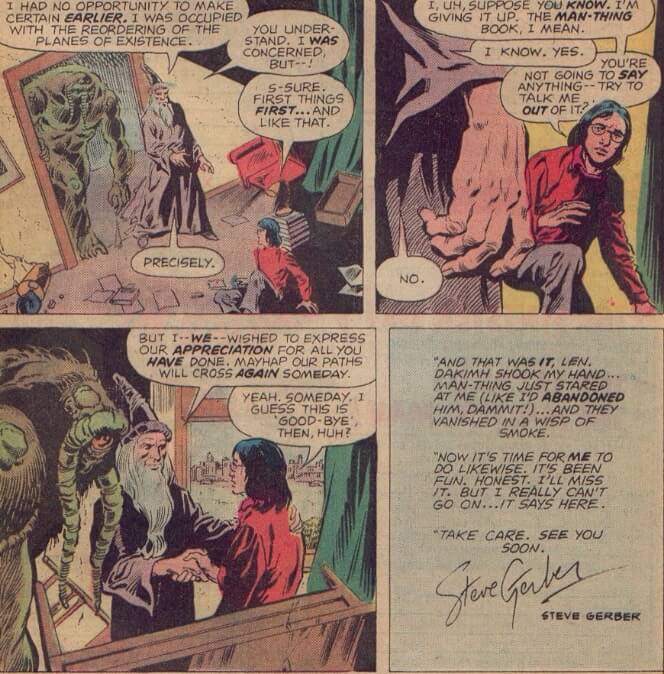
I don’t know if he was trying to save the book by putting several other major Marvel characters on the cover, but if he was…It didn’t work.
And it turns out, it’s not even them. They’re illusions.

Steve Gerber resigns in the most Gerber-y way possible: He writes himself into the book, and re-tells all of the prior 21 issues as if they were dictated to Gerber by Dakimh, the sorcerer from the first arc. It’s long and jumbled, with a full text page in the middle, but in a nutshell Steve himself saves the world because his words are a force against the evil magic in the world.
Man-Thing has gained the ability to leave his swamp, so of course the first thing he wants to do is see Hotlanta. While there, demons masquerade as heroes and fight him. There’s a bunch of new characters introduced (because it’s Steve Gerber, who brings in new people every issue), and there’s more of a story than what I’m putting here, but that’s the gist of it. Lots of the elements of this final arc tie to previous Man-Thing stories.
In the end, Dakimh thanks Gerber for his help-because he and Man-Thing couldn’t have survived without him, and Steve gives a resignation letter in the last panel.

This is clearly an influence on Grant Morrison, who concluded his incredible Animal Man book by drawing himself into the story and making himself an essential part of the character’s denouement. Having a writer who cares so passionately about his characters was essential to the 1970s for Marvel, when they were still expanding and growing their Universe. These days, it’s much less critical, as writers are focused on franchise characters (or legacy versions of franchise characters), and truly new characters barely ever make it in the Marvel world.
I know Gerber isn’t everyone’s cup of tea. He’s experimental, weird, and often his experiments fall flat. But wouldn’t the world be a better place if we allowed for this kind of creativity today? I think Marvel would be better off, at least.
